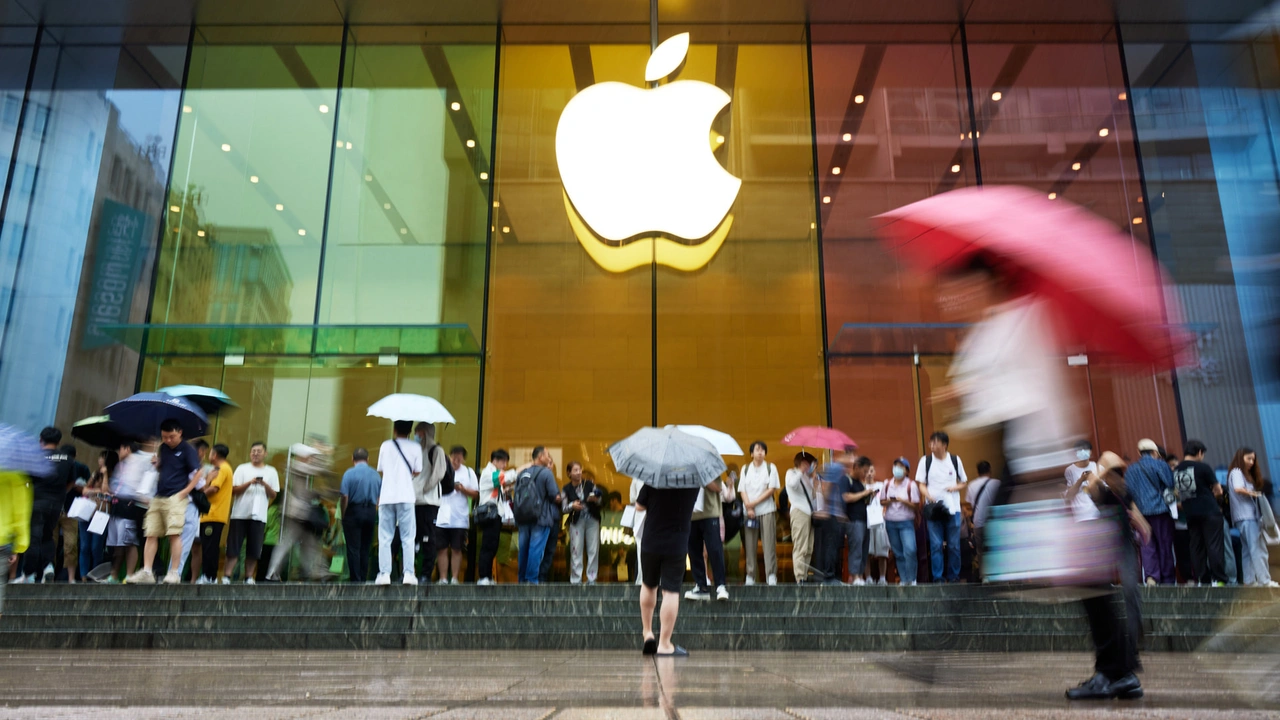Although iPhone sales fell short of investor expectations, Apple reported a 4% overall revenue growth compared to the same period last year, according to its earnings report released on January 30 (U.S. time).
This success reflects Apple’s strategy of diversifying its revenue streams, as the company is no longer overly reliant on iPhone sales like it was in previous years. The strong growth of its services division, along with the recovery of Mac and iPad sales, played a key role in this record financial performance.
Notably, Apple Intelligence has had a positive impact on iPhone sales in markets where it has been deployed. CEO Tim Cook shared that in markets with Apple Intelligence, the iPhone 16 series saw significantly stronger growth compared to markets without this feature, such as China.
Less Dependence on the iPhone
Despite a slight decline in iPhone and wearable device sales, Apple still recorded its best-ever quarter with an impressive revenue of $124.3 billion, up 4% from last year. In particular, the company’s services division continued its strong growth, with a record $26.3 billion in revenue.
The company’s net profit reached $36.33 billion, a 7.1% increase from the same period last year. The positive results were largely driven by the growth of the Mac, iPad, and Services segments. Specifically, Services revenue grew by 14%, while both Mac and iPad recorded impressive growth of 15%.
The growth in the Mac and iPad segments is believed to be driven by the release of new Mac models and the iPad Mini since October 2024. Notably, the redesigned Mac mini, which is more compact, and the significantly upgraded MacBook Pro series have attracted considerable interest from users.
However, iPhone sales in China saw a significant decline, with a drop of more than 11%. CEO Tim Cook explained that half of this decline was due to changes in distribution channels, with part of the issue stemming from the fact that Apple Intelligence has not yet been launched in this market. He also revealed that Apple plans to roll out Apple Intelligence in Chinese this spring to boost sales.
Services Remain the Primary Growth Driver

A highlight of Apple’s financial report came from its services segment, which includes the App Store, iCloud, Music, TV+, and other subscription services. With a record $26.3 billion in revenue for the quarter, services contributed nearly $100 billion in total revenue last year, as shared by CEO Tim Cook during the earnings call.
Apple now has over 1 billion active service subscriptions, including third-party apps on the App Store. The company recorded double-digit growth in the number of paid accounts and service subscriptions compared to the previous year. The total number of active Apple devices worldwide has reached 2.35 billion, providing a solid foundation for the growth of its services ecosystem.
The company has also expanded its existing services, such as the Apple Arcade gaming package and Fitness+ with various workout programs. The Tap to Pay payment service on iPhone has also been rolled out in 20 markets.
However, Apple faces regulatory and legal challenges, particularly around antitrust lawsuits related to the App Store. Although the U.S. Supreme Court dismissed an appeal in the Epic-Apple case, affirming that Apple is not a monopoly, the company must still allow developers to direct users to their websites via in-app links.
Despite these challenges, Apple has maintained its growth trajectory and continues to innovate. Achieving record financial results in the current climate shows that Apple’s product and service diversification strategy is paying off, helping the company reduce its reliance on iPhone sales.




